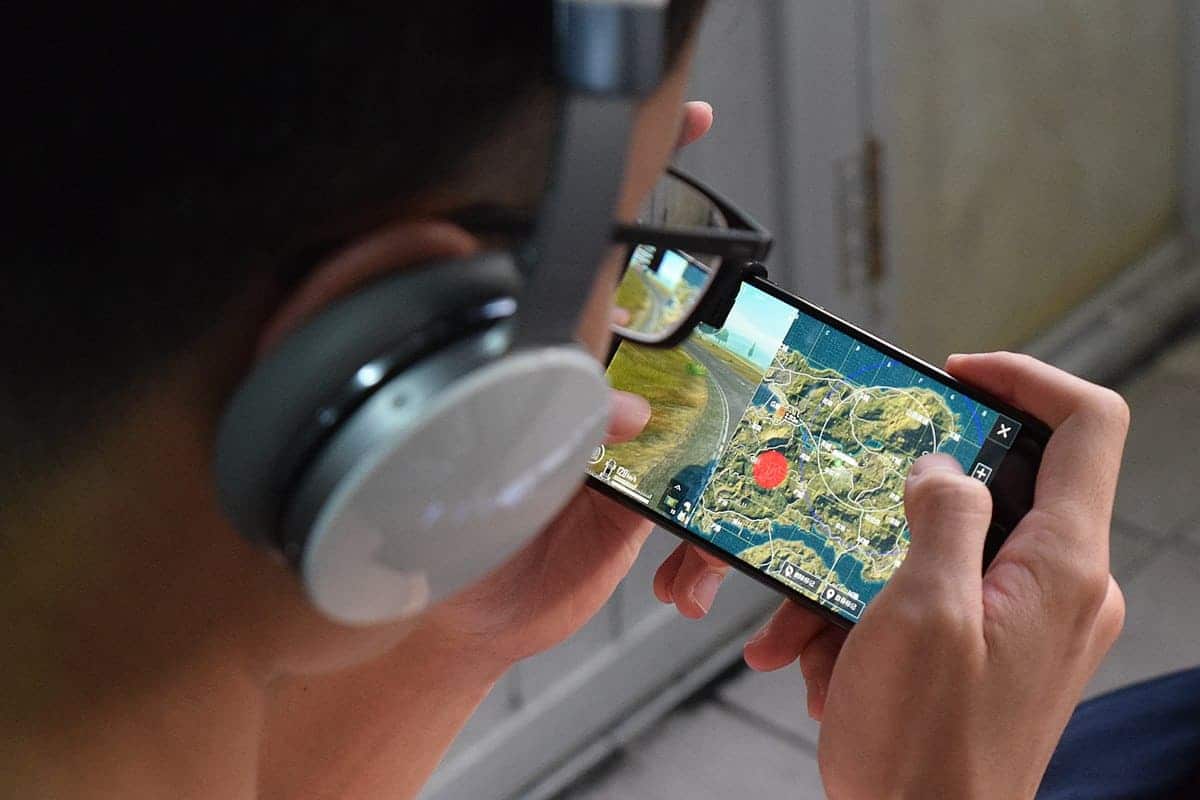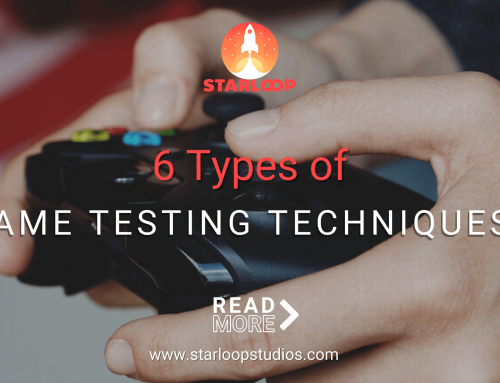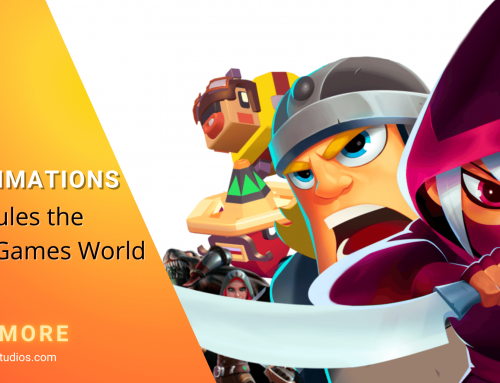A medida que los smartphones se hacen más indispensables para los consumidores, los juegos para móviles siguen creciendo a unos niveles sin precedentes. Si bien las consolas de juegos siguen siendo populares, cada vez más desarrolladores y estudios de juegos están invirtiendo en aplicaciones de juegos para móviles.
De hecho, la industria de los juegos móviles alcanzó un valor de 68.500 millones de dólares el año pasado, disfrutando de un crecimiento anual del 11%. En sólo una década, los juegos para móviles han dominado la industria de los juegos, llegando a representar el 51% de los ingresos totales y eclipsando los ingresos de los juegos para PC.
Este cambio en la demanda de los consumidores se refleja en los últimos cambios en los juegos de esta industria aún en auge.
Aquí tienes cinco de las tendencias más importantes de los juegos para móviles que deberías conocer:
Títulos más grandes, mejores teléfonos
Los grandes nombres de la industria están importando la experiencia de juego de los PCs y las consolas al teléfono. Esto se puede ver en cómo títulos tremendamente populares como Fortnite y PUBG han lanzado versiones móviles de sus juegos, ampliando eficazmente su base de usuarios. A medida que las capacidades de procesamiento de los móviles continúan mejorando, más grandes títulos de juegos están replicando la experiencia de las consolas a los móviles. Tech Radar cita a Call of Duty y Elder Scrolls como algunas de las más recientes incorporaciones respecto a la tendencia de las grandes franquicias a moverse hacia los teléfonos.
Otro de los cambios es el reciente anuncio del servicio de streaming Stadia de Google. Los juegos en la nube están preparados para permitir a los jugadores pasar de las consolas a los teléfonos con relativa facilidad. Esto obligará a los desarrolladores de juegos a realizar la adaptación de los juegos para móviles de sus títulos más recientes y populares. Otros gigantes de la tecnología, como Sony, Microsoft y Tencent, también están desarrollando sus propias plataformas de juegos en la nube.
Los fabricantes de smartphones también están contribuyendo a este cambio. Por el momento, los teléfonos insignia siguen siendo los mejores dispositivos para usar con los juegos para móviles. Pero en la última década, compañías como ASUS han estado creando teléfonos especialmente diseñados para disfrutar de los juegos en el móvil. Con la llegada de teléfonos mucho mejores y la computación en nube, los juegos móviles pronto estarán a la par, si no son mejores, que los de las consolas.
Eventos en directo y eSports
Las opiniones y recomendaciones de amigos son las principales razones por las que la gente elige un juego en lugar de otro. Este es el motivo por el que los bucles virales en Clash of Clans han funcionado hasta ahora. Cuando los amigos y los compañeros comparten sus juegos a través de las redes sociales, la gente tiende a explorar esas mismas aplicaciones. Los juegos más grandes como Pokémon Go están aumentando esto con eventos en vivo para incrementar sus descargas de aplicaciones.
En los últimos dos años, los eSports también se han trasladado a los juegos para móviles. Tanto VainGlory como Clash Royale organizan torneos profesionales que llegan a decenas de miles de espectadores. El Campeonato Mundial de VainGlory de 2017, por ejemplo, tuvo una bolsa de premios de 140.000 dólares. Otras Arena de Combate Multijugador Online (MOBA) como Tencent’s Arena of Valor y Moonton’s Mobile Legends también han entrado en la escena de los eSports el año pasado.
Los torneos de eSports continuarán alimentando la demanda de juegos para móviles en los próximos años. La capacidad de satisfacer esta experiencia competitiva masiva será crucial para las próximas aplicaciones de juegos móviles de mayor éxito.
Ciberseguridad en los juegos para móviles
A medida que más y más gente se sube al carro de los juegos para móviles, los hackers y las organizaciones criminales tratarán de aprovecharse. Nuevos juegos móviles siguen apareciendo en la Play Store y en Facebook todos los días. Como las aplicaciones para móviles son más fáciles de desarrollar que los juegos completos, esta constante oleada de juegos hace que sea más difícil para los proveedores verificar cada uno de ellos, lo que supone una gran puerta de entrada para los hackers.
Una investigación de ZDNet descubrió que el 57% de las aplicaciones fraudulentas de la tienda Google Play Store están clasificadas como juegos para móviles. Estas aplicaciones sirven para infectar tu teléfono con adware malicioso o explotar las cuentas de Facebook y otras plataformas para piratear las credenciales de acceso. El Consejo Especial destaca que más de 540 millones de registros de usuarios de Facebook fueron expuestos después de una filtración el pasado abril – subrayando los peligros que las cuentas interconectadas plantean. Las plataformas han reforzado sus protocolos de seguridad informática, con Google eliminando muchas aplicaciones de intimidación de la Play Store. La ciberseguridad en las aplicaciones de juegos para móviles será una de las principales preocupaciones tanto para los desarrolladores como para los usuarios finales en los próximos años.
Realidad Aumentada
Pokémon Go, de Niantic, ha revolucionado los juegos para móviles. Los juegos inmersivos son considerados como el futuro de las aplicaciones móviles. Títulos como The Walking Dead Our World, Jurassic World Alive, y el recientemente lanzado Harry Potter: Wizards Unite han aprovechado la realidad aumentada para que los usuarios experimenten juegos únicos y atractivos.
Mientras que muchos dicen que todavía hay muchas más formas en las que la tecnología puede madurar, los desarrolladores están viendo un gran potencial en los juegos de RA. Una reciente encuesta de GDC sugiere que la mayoría de los fabricantes de juegos confían en que la AR dominará otras aplicaciones en los próximos cinco años. Con los avances tecnológicos en potencia de computación y la conectividad 5G, los desarrolladores están seguros de que los juegos de RA para móviles elevarán sus intentos de desdibujar las líneas entre los juegos y la realidad.
Blockchain en los juegos
La tecnología Blockchain está desestabilizando toda una serie de industrias, y los juegos móviles no son una excepción. Al aprovechar los ledgers distribuidos como plataforma, los juegos Blockchain están descentralizados. Esto significa una transparencia y una personalización sin precedentes. Mientras que títulos como CryptoKitties y Fomo3D parecen exóticos en este momento, los desarrolladores están explorando los juegos basados en Blockchain para crear juegos para móviles más comunes.
El futuro de los juegos blockchain son los activos de juegos reutilizables. El dinero y los objetos de los juegos para móviles tienen un valor cuestionable fuera del entorno del juego. Los juegos blockchain cambiarán esto por completo. Como los activos basados en blockchain están dentro de bases de datos abiertas distribuidas, pueden ser convertidos en fichas y movidos entre los juegos o incluso vendidos en la vida real como moneda. Tal como están las cosas, sólo hay 650 Dapps de Ethereum categorizados como juegos. Pero a medida que la tecnología avance, llevará a los juegos para móviles a otro nivel.
El auge de los juegos para móviles no va a disminuir pronto, y los desarrolladores y estudios de juegos van a tener un gran recorrido.
Starloop Studios is proud to be part of the Magic Media group, an international group specialising in entertainment and gaming industry services. Our wide range of offerings includes VFX, blockchain gaming, game art services, and more. Reach out today to avail of our expertise and A-Z services for your projects.



